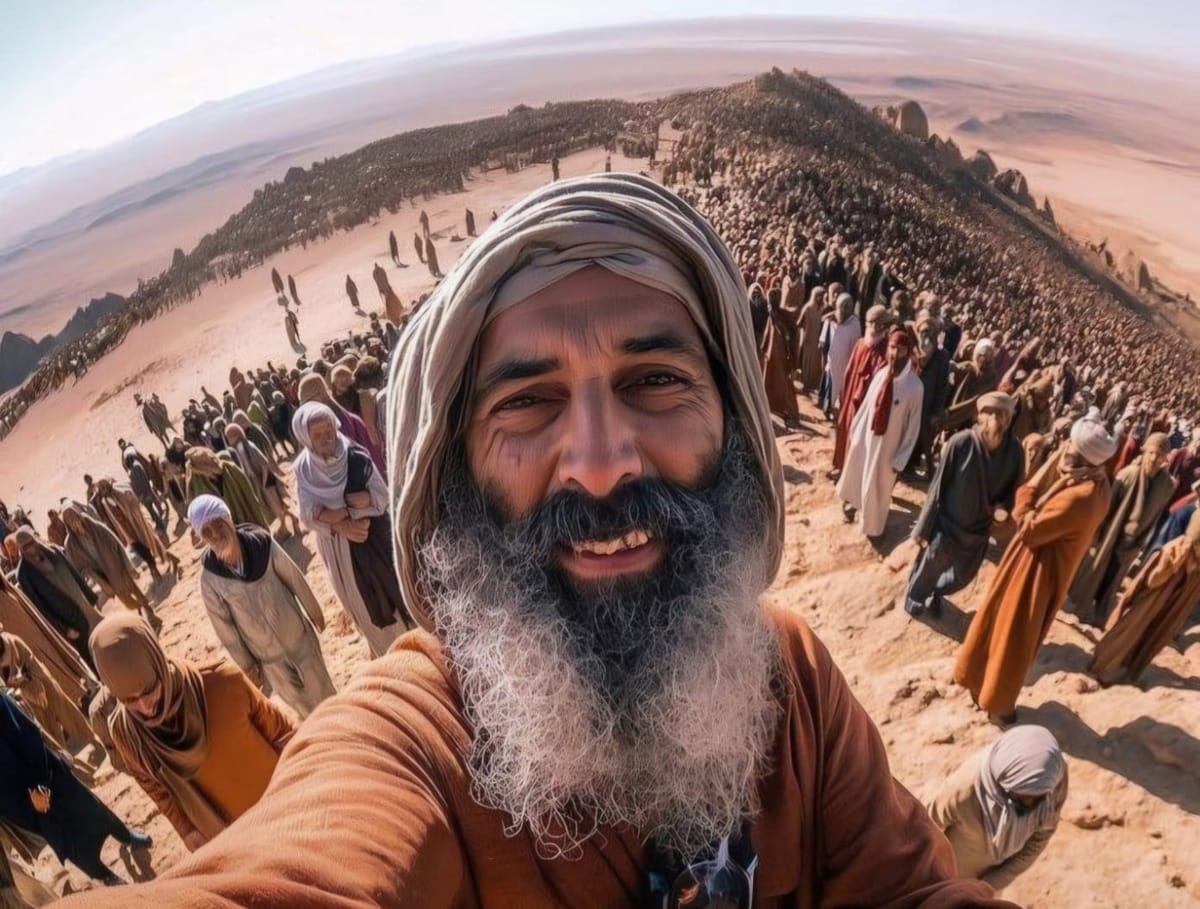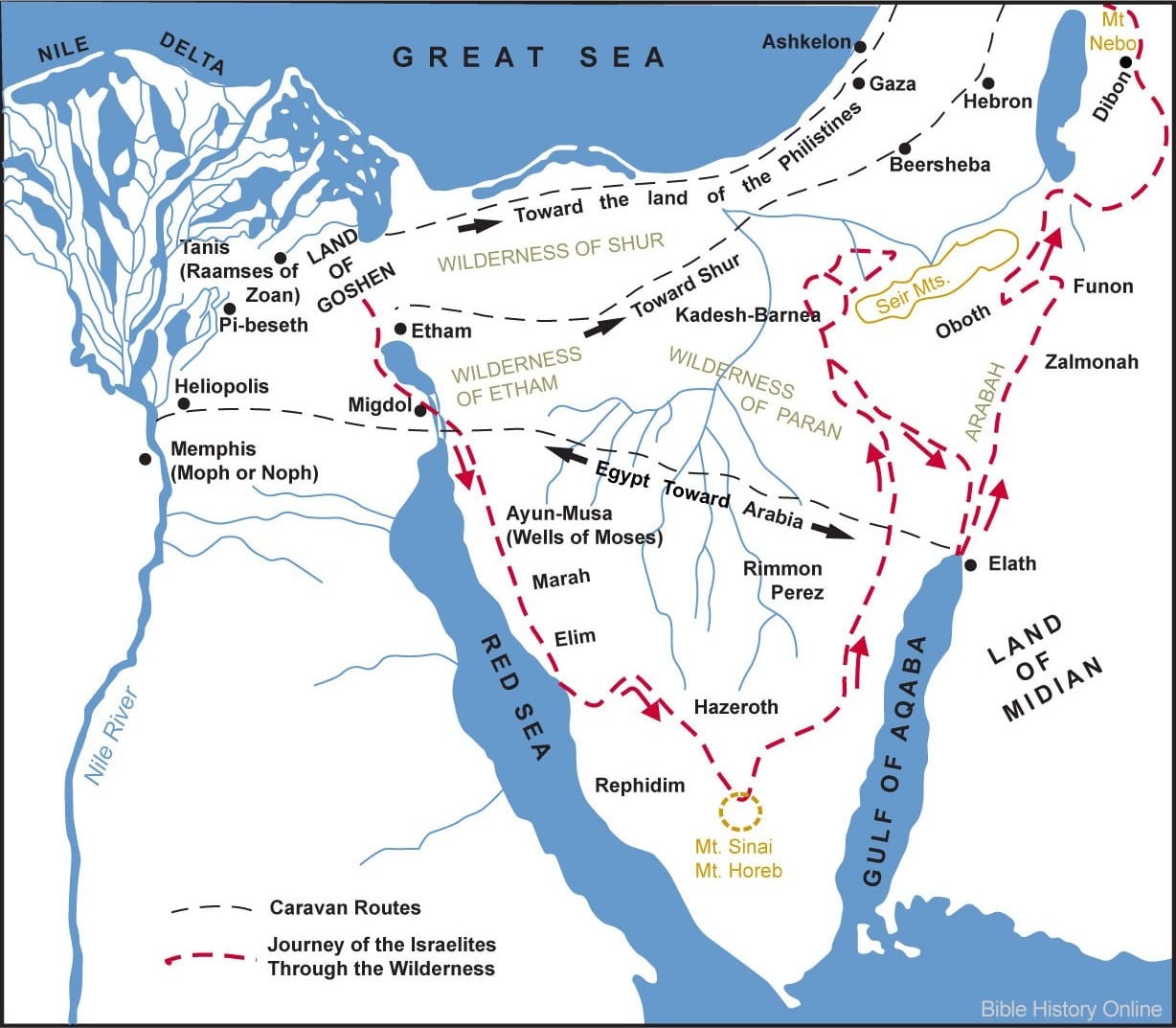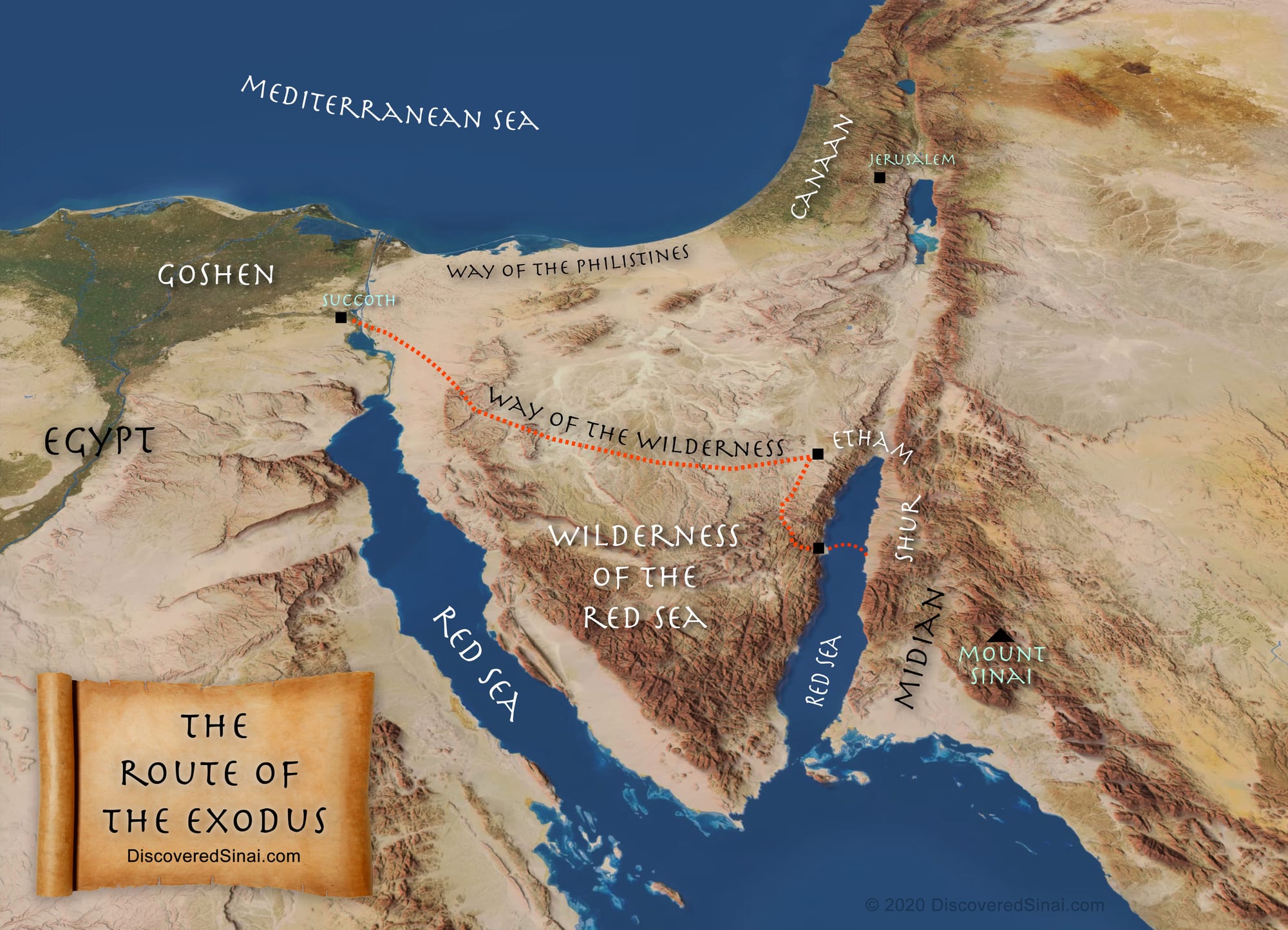A Long Road to Freedom

“And it came to pass, when Pharaoh (פַּרְעֹה – Paro) let the people go, that God did not lead them by the way through the land of the Philistines (פְּלִשְׁתִּים – Plishtim), for it was near; for God said: ‘Lest the people change their minds when they see war before them, and return to Egypt (מִצְרַיִם – Mitzraim).’” (Exodus 13:17)
With these words, the Torah begins the long and difficult forty-year journey of the Jews to the land promised by the Almighty. And yet, the Torah itself writes that there was a much closer and easier way that Moshe (מֹשֶׁה – Moshe) could have follow. A traditional route, which was a trade roude along the Mediterranean Sea.

But God chose a different path for them, knowing that the people, when seeing war in these a reas and facing the first hardships, would want to return to Egypt (מִצְרַיִם – Mitzraim).
But what about freedom (חֵרוּת – ḥerut)? What about the land (אֶרֶץ – eretz) they were yearning for? Could they really forget their dreams so quickly?
The answer: yes! Freedom (herut) that one did not fight for is easily forgotten. Everything that comes easily, goes just as easily. The Jews received their freedom (herut) through a miraculous act—they didn’t have to fight for it, God did everything for them—but for the very same reason, they could also forget it quickly at the first sign of hardship. That’s why the Almighty chose a long road through the wilderness (מִדְבָּר – midbar), so that through the hardships of that journey, they would learn to value freedom (herut) and the preciousness of their land (eretz).

Countless books and self-development courses promise to make us prosperous, beautiful, happy, and popular in no time. But God Himself tells us: there are no shortcuts. True success is achieved only through the long road. That which comes easily, leaves easily.